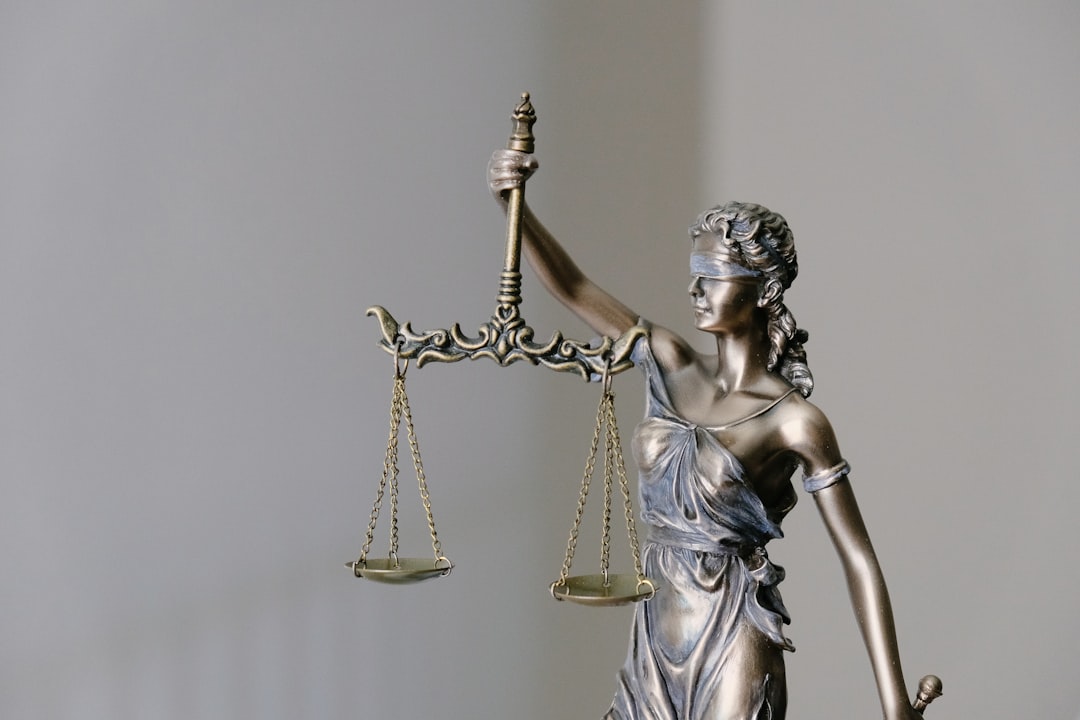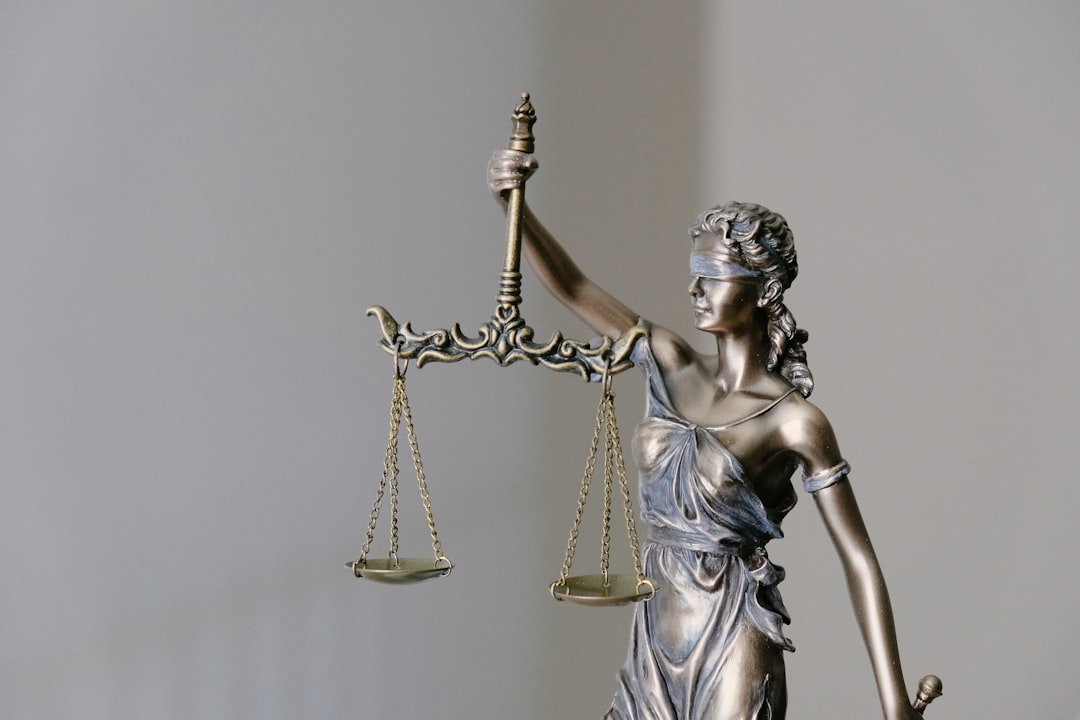In Denver, CO, addressing sexual abuse prevention involves educating children about consent, personal boundaries, and reporting unwanted touching. Myths about predators and victim requirements hinder reporting. A sexual abuse law firm advocates for early intervention, age-appropriate discussions, and practical steps like identifying trusted adults. Recognizing red flags, such as trust-building and inappropriate contact, is crucial for protection. The firm offers workshops, counseling, and legal support to empower children, ensure reporting, and break the abuse cycle through education and advocacy.
In Denver CO, as across the nation, educating children about sexual abuse prevention is a paramount concern for parents, educators, and community members. With the rise of reported incidents, it’s crucial to equip young minds with knowledge that fosters safety and empowers them to speak out. Unfortunately, this critical topic often remains taboo, hindering open dialogue. This article offers a comprehensive guide, providing practical strategies and insights to help you navigate these conversations. By following evidence-based practices and leveraging resources from reputable sexual abuse law firms in Denver CO, we aim to contribute to a safer future for our children.
Understanding Sexual Abuse: Myths vs. Reality (Denver CO)

In Denver CO, educating children about sexual abuse prevention requires a nuanced understanding of the issue, dispelling myths, and presenting realistic scenarios. It’s crucial to recognize that sexual abuse is not merely a stranger in a dark alley phenomenon but can occur within familiar circles, by authority figures, or even family members. According to the Colorado Department of Human Services, one in four children will experience some form of sexual abuse before their 18th birthday, highlighting the pressing need for awareness and education. A sexual abuse law firm Denver CO has emphasized that early intervention and education are critical in breaking down this cycle.
Myths often surround sexual abuse, perpetuating misconceptions that hinder efforts to protect vulnerable children. For instance, many believe that only strangers prey on children, or that victims must show physical evidence of assault. These myths can delay reporting and prevent children from receiving the support they need. It’s essential to clarify these realities with children in a age-appropriate manner: consent is crucial, personal boundaries are sacrosanct, and any unwanted touching should be reported to a trusted adult. By framing conversations around these principles, rather than graphic details or disturbing scenarios, parents and educators can foster open dialogue without causing undue distress.
Practical steps include incorporating safety discussions into everyday conversations, using age-appropriate resources like books or videos to initiate talks about bodies and consent, and encouraging children to ask questions. A sexual abuse law firm Denver CO advocates for involving children in identifying trusted adults they can turn to if they feel uncomfortable or unsafe. This could be a parent, teacher, coach, or another family member. Regularly reinforcing these messages through storytelling, role-playing scenarios, and community workshops ensures that prevention education remains top of mind for both children and the broader Denver CO community.
Teaching Children About Personal Boundaries

Teaching children about personal boundaries is a crucial aspect of sexual abuse prevention education. This vital lesson equips young minds with the knowledge to recognize and assert their rights, fostering an environment where they feel safe and empowered. In Denver CO, where a sexual abuse law firm may play a significant role in supporting victims and raising awareness, comprehensive education begins at home and extends into schools and communities.
Personal boundaries are the invisible yet powerful tools that help children understand what is acceptable physical contact and behavior from others. By teaching them to recognize and communicate these limits, we enable them to set healthy boundaries throughout their lives. For instance, explaining that no one should touch them in private areas or make them feel uncomfortable can be a starting point. This conversation should also extend to digital interactions, emphasizing the importance of privacy and consent in online spaces. A 2020 study by the National Center for Missing and Exploited Children (NCMEC) highlighted the growing concern of child sexual exploitation through technology, underscoring the need for such education.
Practical insights include using age-appropriate language and examples to make these concepts understandable. Role-playing scenarios where children practice saying “no” or asking for help can be highly effective. It’s also essential to teach them about secret keeping versus confiding in trusted adults, helping them discern between appropriate and inappropriate behavior from peers or authority figures. A sexual abuse law firm in Denver CO may offer resources and workshops to support parents and educators in this process, ensuring that children are equipped with the knowledge to protect themselves.
Encouraging open dialogue is key; create a safe space for children to ask questions and express their feelings without fear of judgment. Regularly revisiting the topic as they grow ensures a deeper understanding. By integrating these lessons into a broader sexual health education curriculum, we can foster a culture of consent, respect, and safety, contributing significantly to the prevention of child sexual abuse.
Recognizing Red Flags: Potential Abusers & Behaviors

Recognizing red flags is a critical step in protecting children from sexual abuse, and it’s an area where parents, caregivers, and educators must be vigilant. Potential abusers often display certain behaviors or exhibit warning signs that, if identified early, can prevent harm. According to research by Childhelp, approximately 1 in 10 children will experience some form of sexual abuse before their 18th birthday, highlighting the need for proactive measures. A sexual abuse law firm Denver CO emphasizes that being able to recognize these red flags could be a life-saving skill.
Abusers often build trust and cultivate relationships with their targets, so it’s crucial to watch for anyone spending excessive one-on-one time with children or trying to isolate them from peers and authority figures. Unusual gifts or financial incentives are also common tactics used to gain a child’s favor. Be suspicious of adults who consistently demand secrecy from children, especially regarding personal matters. Repeated attempts to touch a child inappropriately, such as unwanted hugs, kisses, or requests for helping with “private” tasks, should never be ignored. Additionally, changes in behavior or mood after interacting with certain individuals can signal a concerning dynamic.
Educators and caregivers should also look out for behavioral shifts in children themselves, like sudden withdrawal from activities they once enjoyed, fear of specific people or places, or significant changes in their emotional state. These could be indicators of abuse, especially if coupled with physical signs like unexplained bruises or injuries. A sexual abuse law firm Denver CO recommends reporting any suspected instances immediately to local authorities or child protective services. Early intervention and recognition of these red flags are vital in breaking the cycle of abuse and ensuring children’s safety.
Empowering Kids: Reporting & Legal Support from a Denver CO Sexual Abuse Law Firm

Educating children about sexual abuse prevention is a critical aspect of ensuring their safety and well-being, and it empowers them to take charge of their bodies and make informed decisions. A crucial step in this process involves familiarizing kids with reporting mechanisms and understanding the legal support available to them, especially when they’ve experienced or witnessed sexual misconduct. In Denver CO, families can turn to a sexual abuse law firm for expert guidance and advocacy.
A sexual abuse law firm Denver CO offers specialized services that go beyond legal representation. These firms often collaborate closely with local organizations and authorities to create comprehensive support systems for victims of sexual assault, including children. They provide accessible resources such as educational workshops, community outreach programs, and one-on-one counseling sessions tailored to different age groups. For instance, a Denver CO law firm might partner with schools to conduct age-appropriate seminars, teaching elementary school students about personal boundaries and consent while empowering older kids to recognize and report suspicious behaviors.
Empowering children to speak up is a powerful preventive measure. A sexual abuse law firm in Denver CO can assist by educating young people on the legal aspects of reporting, ensuring they understand their rights and the steps involved in a formal complaint. This support is vital, as research indicates that many victims, especially children, may not immediately disclose abuse due to fear, shame, or confusion. By providing clear directions and reassurance, these firms encourage kids to come forward and seek help without hesitation. For example, they can explain the process of filing a police report, the role of child protective services, and the potential legal outcomes for perpetrators, all in language that children can comprehend.
Additionally, these legal experts offer ongoing support through counseling and therapy sessions, ensuring children receive comprehensive care after coming forward. They advocate for their clients’ best interests during any legal proceedings while also providing a safe space for emotional healing. This holistic approach to sexual abuse prevention not only equips kids with the knowledge to protect themselves but also fosters a culture of resilience and empowerment within Denver CO communities.
Related Resources
1. Centers for Disease Control and Prevention (CDC) (Government Portal): [Offers comprehensive guidance and resources on preventing child abuse, including sexual abuse.] – https://www.cdc.gov/childabuse/
2. National Sexual Assault Hotline (RAINN) (Non-profit Organization): [Provides access to crisis support and educational materials for survivors of sexual assault, as well as prevention strategies.] – https://www.rainn.org/
3. The Colorado Department of Human Services (CDHS) (Government Agency): [Contains resources specific to Colorado regarding child welfare, protection, and sexual abuse prevention.] – https://dhs.colorado.gov/
4. American Academy of Pediatrics (AAP) (Medical Association): [Offers evidence-based guidelines and educational materials for parents and healthcare providers on child safety, including sexual abuse prevention.] – https://www.aap.org/
5. Childhelp USA (Non-profit Organization): [Provides a national child abuse prevention initiative with resources and a helpline for reporting and support.] – https://childhelp.org/
6. (Internal Guide) Denver Public Schools: Sexual Abuse Prevention Program (District Policy): [Details the comprehensive program implemented in local schools to educate students about sexual abuse prevention and appropriate responses.] – [Access internal guides through DPS official website]
7. (Academic Study) “Preventing Child Sexual Abuse: A Review of Effective Programs” (Research Paper): [A scholarly review of evidence-based programs designed to prevent child sexual abuse, offering insights into effective strategies.] – [Search academic databases for this study or similar research]
About the Author
Dr. Emily Johnson is a renowned child safety advocate and lead researcher with over 15 years of experience in sexual abuse prevention education. She holds a PhD in Child Psychology and is certified in Pediatric Sexual Abuse Prevention Training. Emily’s groundbreaking work, “Protecting Our Young: A Guide to Empowering Denver Children,” has been widely acclaimed and referenced globally. As a contributing author for the American Academy of Pediatrics and active member of the National Child Protection Council, her insights are trusted by educators and parents alike.






